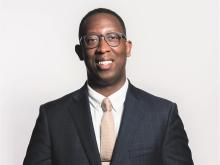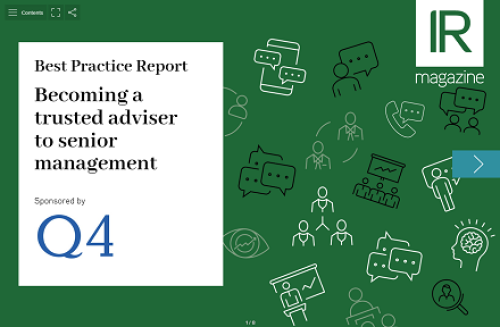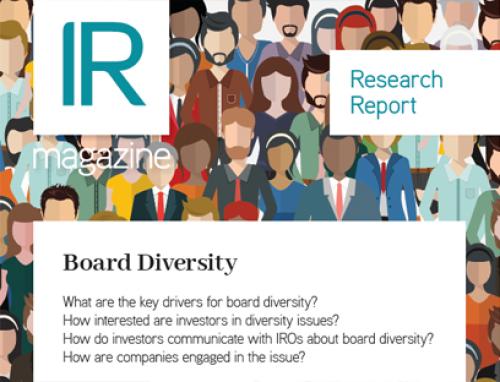It’s been my privilege to have worked for more than 20 years in investor relations, communications and stakeholder engagement. I’m sure I don’t need to explain to readers of IR Magazine that it’s a very rewarding and interesting area of corporate life, one in which life-long learning across a broad range of topics – from hard financials to so-called ‘soft’ skills – is essential.
I’ve also been aware that I don’t fit the profile of the typical entrant to the industry, being a black professional from a working-class background and without a university degree.
Given the rich and varied career I’ve been able to enjoy, I’m passionate about ensuring that the opportunities to work in IR are open to as many people as are capable of succeeding in it. But a candid assessment of the current composition of the IR profession would suggest we haven’t reached that goal.
I’m sure I’m not the only person who wonders why that might be, and whether there’s anything we can all do to change it.
Making ‘twice the difference’
I recently worked on a CFA UK media campaign called #WhatIKnowIs, in which I encouraged black professionals and other diverse individuals in financial services to think about how they could make ‘twice the difference’ instead of trying to work ‘twice as hard’, as many well-intentioned friends and family members often encourage us to do.
It was a pleasure to be invited to IR Magazine’s Equality in IR Forum in June to discuss that theme in more depth at a virtual roundtable. The roundtable attendees, from both inside the IR profession and those looking to find a role in it, discussed with me:
- Why corporate culture is the bridge between surface-level diversity and genuine inclusion
- The role psychological safety and a patient, coaching approach play in building consensus and driving collaboration when building an inclusive culture
- Why individuals’ actions are as important as collective ones – inclusive culture is crucial, but it’s equally critical for diverse talent to make twice the difference by playing to their strengths with the support of their colleagues.
But individual actions and organizational changes can only get us so far. I believe a paradigm shift is needed in the way organizations view talent – in IR, in financial services and beyond – in order to build the breadth of talent they need for the future. And there’s a lesson we can borrow from investment management to implement that new thinking.
Diversification: Lessons from portfolio management
There’s been no shortage of comment on the false dichotomy that suggests the goals of hiring diverse talent and hiring high performers are somehow opposed.
I say false dichotomy with confidence because I remember a mathematical formula from my CFA studies (full of sigmas, rhos and cross-terms). The basic principle of the formula is that diversification benefits can be gained from adding assets to a portfolio that are uncorrelated with the existing assets, even if their expected return isn’t necessarily higher.
What works mathematically for portfolios of assets also applies to teams of professionals. Adding people to a team who make twice the difference – who know things the team doesn’t already know – can be a huge benefit.
In light of that, the principles I’ve held onto the few times I’ve been a hiring manager are not necessarily about finding a hire who has an encyclopedic knowledge of the things my team does, but on finding someone who:
- Has a good understanding of the fundamental knowledge needed in the team
- Has a strong appetite and capacity for learning new things
- Has knowledge and personal attributes that aren’t already present in the team.
In practice, I’ve found that applying those principles can often mean hiring someone who isn’t necessarily the ‘obvious’ choice. I’ve never regretted doing it – having that capacity for learning and for assessing a situation using a different lens is a perfect way of making twice the difference.
With that in mind, it’s often disappointing for me to see so many advertised IR roles that practically insist on hiring existing IR professionals (or sell-side analysts, at a push).
I’m very conscious of the reasons why a ‘plug and play’ hire who can do everything on day one is the dream for many hiring managers. But I worry that by holding onto the belief that the best IR professional is always an existing IR professional, the industry is missing out on new talent who can bring in those different perspectives, new ideas and new ways of doing things that might not have come from within the industry.
To make twice the difference, everyone – individuals, organizations and the profession as a whole – should all aim to be a little bolder.










